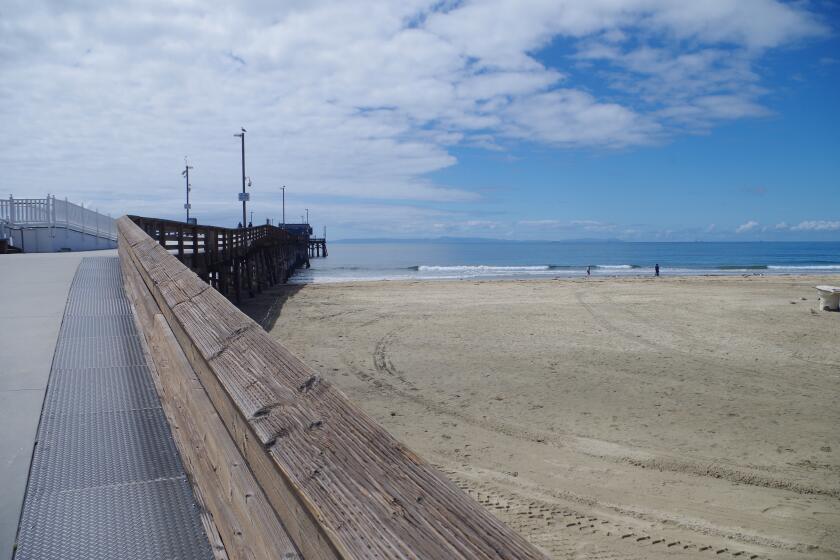Preparing for the worst
- Share via
Eron Ben-Yehuda
HUNTINGTON BEACH -- Imagine a canister exploding at the pier on a busy
summer day, spraying a mysterious powder on a crowd of people who then
fall ill.
That’s one of the scenarios local officials trained for last week as part
of the federal government’s effort to prepare the city for a terrorist
attack using biological, chemical or nuclear weapons. Representatives
from the Department of Defense, the FBI, the Environmental Protection
Agency and others worked with city agencies.
Terrorists tend to target places where large groups gather, which makes
the city more vulnerable than most other cities in the county because its
famous shoreline attracts millions of tourists annually, said city
spokesman Rich Barnard.
“The terrorists are trying to make a statement usually,” he said.
Officials stressed that the city has never faced such an assault and that
none appears likely. But that’s no excuse for dismissing the potential
danger, they say.
“These are very minute possibilities in Huntington Beach, but they are
possibilities,” Fire Chief Mike Dolder said.
The threat can come from anywhere, either inside and outside the country,
said Michelle McCaskill Griggs, spokeswoman for the program sponsored by
the Department of Defense.
Although they failed, terrorists tried to use chemical agents when they
bombed New York City’s World Trade Center in 1993 and Oklahoma City in
1995, she said.
The types of weapons capable of mass destruction are no longer limited to
bulky missiles and rockets. Releasing deadly sarin gas or anthrax into
the air can be done using an ordinary aerosol can, Dolder said.
“They come in all sizes, shapes and forms,” he said.
To help local officials recognize the danger, federal experts spent five
days training around 500 people, including police, fire and public works
personnel. The city is one of 120 cities nationwide selected for the
program. The others in the county are Santa Ana and Anaheim.
Although the city already has a hazardous material response team, the
federal government will donate $300,000 so the city can buy protective
clothing and testing equipment to meet the dangers the city may face,
Dolder said.
“I hope we never do [need this training], but that doesn’t mean we
shouldn’t be prepared,” he said.
All the latest on Orange County from Orange County.
Get our free TimesOC newsletter.
You may occasionally receive promotional content from the Daily Pilot.



